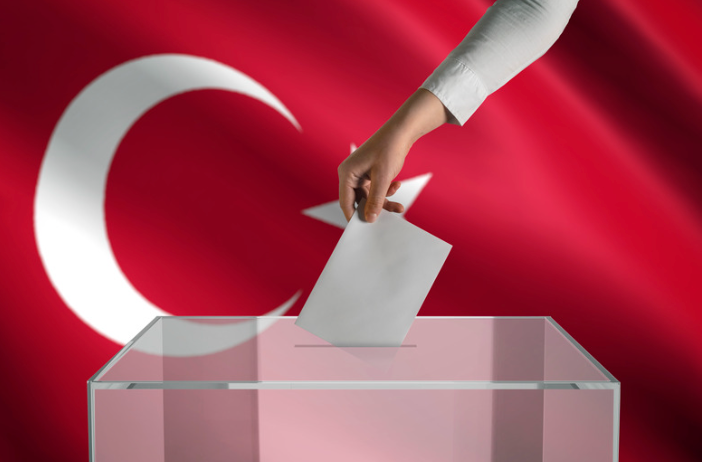Turkey’s Presidential Election: A Close Race and Potential Runoff
In the wake of Turkey’s closely watched presidential election, preliminary results have indicated a tight contest between incumbent President Recep Tayyip Erdoğan and opposition leader Kemal Kılıçdaroğlu. As of early Sunday morning, with over 90% of the votes counted, neither candidate is projected to secure the majority needed to avoid a possible runoff election. This outcome has set the stage for a contentious political period in the nation.
Current Standings in the Election
The High Election Board of Turkey posted initial figures indicating that Erdoğan secured approximately 47% of the vote, while Kılıçdaroğlu followed closely behind with about 45%. The remaining votes were dispersed among several smaller candidates, creating an uncertain political landscape. If these trends hold true, a runoff election is anticipated to occur on May 25, 2024, increasing the stakes for both candidates.
Reactions from the Candidates
In response to the preliminary results, Kılıçdaroğlu addressed supporters during a rally in Ankara, expressing confidence that the electorate desires change. He stated, “The people of Turkey have spoken, and their will is clear: They want change. We are ready to finish this journey in the second round.” In contrast, Erdoğan took a defiant stance from his party’s headquarters in Istanbul, thanking his base for their support and asserting, “We are ahead, and we will triumph in the runoff. The people will choose stability and strength.”
High Voter Turnout
Voter turnout during this election was notably high, exceeding 85%, a testament to the perceived stakes involved. Long lines formed at polling stations, with voters enduring adverse weather conditions to cast their ballots. This high turnout reflects the political engagement within Turkey, as citizens voiced their opinions amid a backdrop of economic challenges and dissatisfaction with the current administration.
Observations from Election Monitors
The Organization for Security and Co-operation in Europe (OSCE) had observers on the ground, noting the enthusiasm among voters while also addressing claims of isolated irregularities. These concerns have led authorities to promise thorough investigations. Gisela Möller, an OSCE election observer, remarked on the election’s significance, stating, “This election shows the resilience of Turkey’s democracy. The level of engagement is remarkable.”
Key Factors Influencing the Election
Several pivotal factors emerged from the election results. A prominent urban-rural divide was noted, with Erdoğan finding substantial support in rural areas and conservative heartlands, while Kılıçdaroğlu garnered significant backing in urban centers, including Istanbul, Ankara, and Izmir. Furthermore, the youth vote appeared to shift considerably toward Kılıçdaroğlu, reflecting a desire for change among the younger demographic. Political analyst Dr. Murat Kadir observed, “The youth want change, and they are energized.” Economic discontent also played a crucial role, as many voters expressed frustration over issues like inflation and currency devaluation.
International Reactions
The outcome of the election is under close scrutiny by the international community given Turkey’s key position as a NATO member and regional player. Both the European Union and the United States emphasized the importance of adhering to the electoral process. U.S. Secretary of State Antony Blinken commented, “We look forward to working with whoever is elected by the Turkish people. Turkey is an essential partner in addressing global challenges.” Additionally, Russia’s government expressed confidence in Turkey’s democratic processes, highlighting the importance of a stable and cooperative government.
Looking Ahead: What Comes Next?
As Turkey prepares for a potential runoff, analysts anticipate intensified campaigning from both Erdoğan and Kılıçdaroğlu over the coming weeks. The success of either candidate will likely hinge on winning over undecided voters and those who supported third-party candidates, such as Sinan Oğan, who has taken around 7% of the vote. Dr. Aslı Aydıntaşbaş, a senior fellow at the Brookings Institution, noted the unusual circumstances for Erdoğan, stating, “This is uncharted territory for Erdoğan. He has never faced a runoff before, and the opposition is more unified than ever.”
Conclusion
As Turkey stands at a critical juncture, the forthcoming weeks promise to shape the country’s political future significantly. The electoral battle between Erdoğan and Kılıçdaroğlu reflects deeper societal divisions and economic concerns that have become increasingly prominent in the public consciousness. Whether Erdoğan’s long-time grip on power will withstand this challenge or if Kılıçdaroğlu will usher in a new era of governance remains to be seen. This election serves as a pivotal moment for both the candidates and the Turkish populace as they navigate their collective future.
FAQs
What happens if no candidate secures a majority in the Turkish presidential election?
If no candidate achieves a majority, a runoff election will be held to determine the winner between the top contenders.
When is the runoff election scheduled to take place?
The runoff election, if necessary, is slated for May 25, 2024.
What were the main issues affecting voter sentiment in this election?
The significant issues included economic dissatisfaction, high inflation, and desires for political change, especially among younger voters.
How did voter turnout compare to previous elections in Turkey?
The voter turnout exceeded 85%, which is notable and reflects heightened engagement compared to previous elections.
What role does international observation play in Turkish elections?
International observers, such as those from the OSCE, monitor elections to ensure fairness and transparency, commenting on the electoral process and reporting any irregularities.

